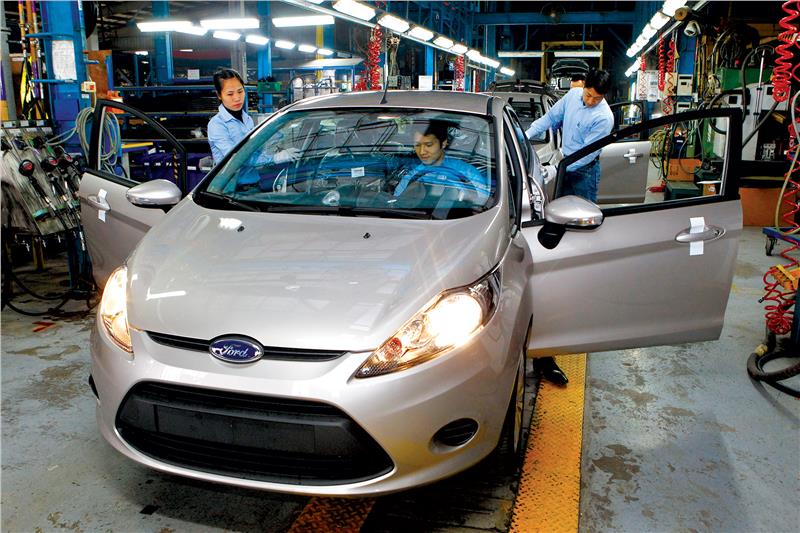This information was given in the global competitiveness report 2014 which was announced by WEF on September 3rd. Vietnam ranks 6th in Southeast Asia, after Singapore, Malaysia, Thailand, Indonesia, and Philippines. Despite jumping 2 notches in competitiveness ranking, Vietnam economy is assessed almost unchanged compared to that in the last year. The financial and banking systems are still in conditions sensitive with external factors. The level of development of businesses is also poor when the domestic companies mainly operate at the end of the value chain. However, the increase in the ranking shows that Vietnam market is gradually improved in both quality and quantity. Vietnam economy possesses certain advantages favorable than other countries in the region such as cheap and young labor, incentives of the government for foreign investors. Therefore, the investment in Vietnam is attracting the attention of foreign investors.

Compared to the report of last year, the ranked economies drop from 148 to 144. Four countries excluded from this year report are Ecuador, Bosnia & Herzegovina, Liberia and Benin. The most competitive economy in the world is still Switzerland, followed by Singapore; the U.S has jumped through Finland and Germany from the 5th place of last year to 3rd place in this year’s report. Emerging economies such as Saudi Arabia, Turkey, South Africa, Brazil and India are relegated this year. Only China rises to 28th, up 1 notch.
The Global Competitiveness Report is implemented annually, evaluating the competitiveness of countries according to 12 criteria including infrastructure, education and training, the efficiency of labor market, the level of technology and breakthroughs. The aim of WEF is to draw a panorama of factors promoting competitiveness, productivity and prosperity among countries.
According to this organization, leading nations in the charts are in possession of common elements helping to enhance their competitiveness. Those are focusing on development, approaching and utilizing available human resource, as well as concentrating on investment to accelerate breakthroughs. Smart investments are effective thanks to the approaching method based on the collaboration between the public and private sectors.

The Asia Pacific region is evaluated with very competitive vision. This region has six countries in top 20 including Singapore, Japan, Hong Kong, Taiwan, New Zealand, and Malaysia. However, Asia also has 5 names under top 100, though these nations raise their levels this year, including Nepal, Bhutan, Bangladesh, Myanmar and East Timor. WEF said that the common challenges of emerging economies are the solutions to the infrastructure deficiency, increase in regional connection, decrease in bureaucracy and corruption, and improvement in the efficiency of the market.